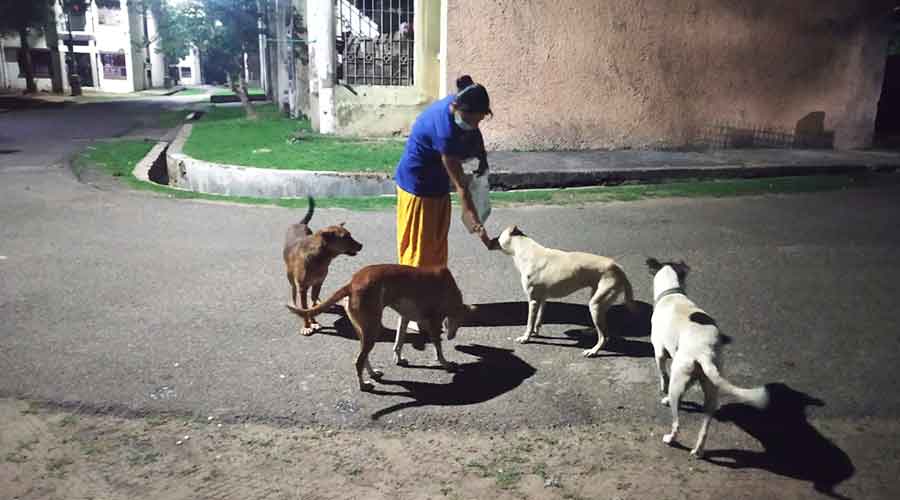A seven-month-old infant died in Noida on Tuesday after a dog attack that experts say is the latest among incidents across the country that underscore India’s failure to shield its population from hazards posed by street dogs.
Animal behaviour experts and conservation scientists say the failure is rooted in impractical policies purportedly intended to control stray dog population and irresponsible feeding that encourages stray dogs to cluster within residential neighbourhoods.
The dog attacked the infant within the premises of a gated multi-building apartment complex on Monday evening where the parents were engaged as construction workers, police and local residents said.
The child who suffered grievous injuries died in a hospital hours later, they said.
Scientists studying stray dog populations say the attack is only the latest in a spate of similar incidents across India in which the victims of dog attacks are invariably children of economically weaker sections of people or other vulnerable people.
“We’ve documented roughly 30 child deaths somewhere in the country from dog attacks during this year alone,” said Abi Vanak, associate professor at the Ashoka Trust for Research in Ecology and the Environment, Bangalore.
Research by Vanak and his colleagues in Bangalore has bolstered support for the idea that a small proportion of households that engage in direct feeding of street dogs can help build and sustain large populations of stray dogs in their neighbourhoods.
“What such incidents suggest is that a small group of animal rights activists appear to continue to value their own hobbies over the lives of children,” said Vanak.
After such incidents, scientists say, a typical response from local communities is to request local authorities or dog catchers to capture and remove the dogs from their neighbourhoods.
“Catching stray dogs and taking them to a distant location is not a solution,” said Anindita Bhadra, a scientist and faculty member at the Indian Institute of Science Education and Research, Calcutta, who specialises in free-ranging dog behaviour. “Other dogs will take their place.”
Bhadra, like Vanak, said irresponsible feeding draws stray dogs into neighbourhoods. “When you offer food to stray dogs, when you feed their puppies, you’re adding much more food than they will otherwise get and this will increase the dog population,” she said.
Residents in the Noida apartment complex have claimed their own fellow residents have encouraged stray dogs by feeding them within the premises. “When such feeding stops, the dogs will spontaneously migrate out,” Bhadra said.
The Supreme Court, hearing petitions on the right to feed dogs, has said that a balance needs to be maintained between the safety of people and animal rights and suggested that those who feed stray dogs could be made responsible for vaccinating them and bearing the cost of treatment if somebody is attacked by the animal.











